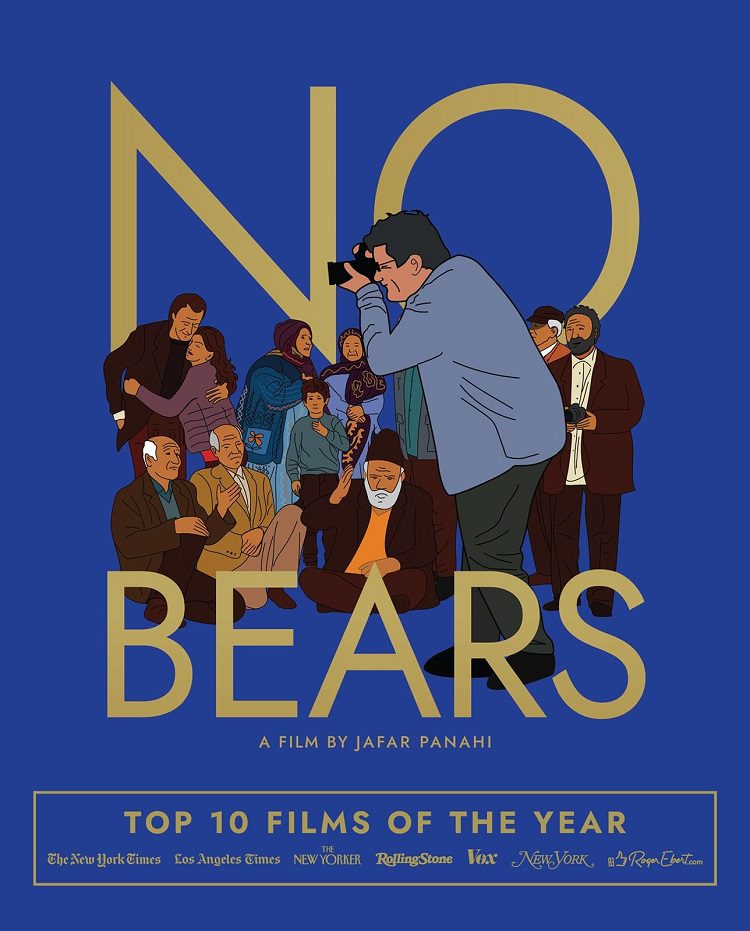
I’m not familiar with Jafar Panahi’s cinema, but from what I’ve heard from other film lovers and critics is that he and his body of work are an unlimited source of courage, bravery, and personal triumph in a continuing state of constant oppression from every turn. With last year’s clever and quietly impressive No Bears, he has seemed to reach his zenith.
Unfolding in two different but connecting stories, the film has Panahi playing a fictionalized version of himself as he arrives from the big city to a rented room in small village on the border of Turkey. From there, he guides the making of a film from his laptop (considering the fact that he isn’t allowed to leave Iran). He soon becomes entangled in a local scandal involving a photo he may or may not have taken. This conflict grows more intense until it ends in a hopeless tragedy.
The second story centers on the film that Panahi is making in the first one. It’s about a couple who want to escape to Europe and their attempts to obtain passports. This one takes a big turn after the female lead looks at camera and decides to stop acting. She reveals that she and the male lead are real-life refugees who are also trying to make it to Europe. Unfortunately, just like the first story, this one also leads to a grim conclusion.
Judging by the unhappy endings that both stories have, this reflects on Panahi’s real life of being a political prisoner and being banned from making movies. But making the best of his situation and his cinematic gifts, he has found an ingenious way to still make films, especially with available technology. He also refuses to sugarcoat the disparity of life in Iran, where fighting for freedom and protesting automatically gets you in trouble. But the courage there continues on.
No Bears has been acclaimed all over the world and rightly so. It’s a film about determination; a film about not conforming to the pressures of a difficult society; a film about political persecution; and most of all, it’s a powerful work about the passion for filmmaking. Although this is the first film I’ve seen of his, I obviously know that Panahi is a stone-cold genius, one whose filmmaking should inspire everyone to fight for the right to create, as well as the right to stand up to oppression.
Supplements include On Panahi’s Films, a new interview with filmmaker Ramin Bahrani about Panahi’s cinema; Panahi Speaks from Prison; and trailer.